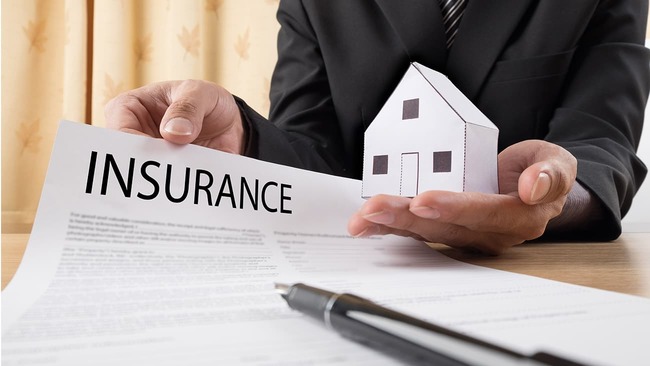The Difference Between Hazard Insurance and Homeowners Insurance

It’s always a good idea to create a budget after becoming a homeowner. Aside from your monthly mortgage payment, you’ll also be responsible for HOA dues and general maintenance. Yet many homeowners often forget to account for another significant expense: homeowners insurance.
In simplest terms, homeowners insurance protects your residence and certain belongings from things out of your control. Hazard insurance, meanwhile, adds an extra layer of protection. The main takeaway from this article is that hazard insurance is a part of homeowners insurance — they are not two different types of coverage.
What is homeowners insurance?
Per Allstate, homeowners insurance can help you repair or replace your home and belongings in the event of a fire, theft, or another similar circumstance. This coverage may also prevent you from breaking the bank if a visitor were injured at your home. Homeowners insurance, much like car insurance or life insurance, provides peace of mind when the unexpected happens.
So what exactly does homeowners insurance cover? Well, as detailed in our home insurance guide, policyholders typically opt for property damage insurance, personal liability coverage, and medical liability coverage. Additional living expenses coverage ensures that your family has a place to stay should your home become unlivable for a while.
The cost of homeowners insurance largely depends on the amount of coverage you select. Keep in mind that more coverage and increased coverage limits translate to a higher cost. Certain valuables and features of your home can raise the price of your policy as well.
What is hazard insurance?
Policygenius defines hazard insurance as “the specific portion of your homeowners insurance policy that protects your home from perils covered in your policy.” The critical detail to understand about hazard insurance is that it usually refers to coverage for your home’s structure, and that’s it. Pro tip: plan on selecting other coverages within your homeowners insurance policy to protect belongings inside the house.
At the beginning of the article, we briefly mentioned that hazard insurance and homeowners insurance go hand in hand. But home buyers must know what their policy entails. While some homeowners insurance policies offer full protection against hazards, some mortgage lenders require supplemental hazard insurance.
This is where those perils we touched on earlier enter the picture.
What does hazard insurance cover?
Hazard insurance provides coverage for everything from fire and lightning to hail and theft. If your home is ever vandalized, this type of insurance should cover the damage. The same is true when it comes to an HVAC system freezing or heavy snow damaging your roof.
Our advice for soon-to-be homeowners: don’t assume that a policy covers all risks. For example, few hazard insurance policies cover damage from flooding and earthquakes. Those who live in areas prone to these natural disasters must add optional coverages for complete protection.
Is hazard insurance required?
Those hoping to qualify for a mortgage will likely need to buy hazard insurance with their homeowners insurance. Since the value of your home is tied to the loan, it’s in your lender’s interest to help maintain that value. Having this insurance in place reduces the chance of your home losing value from damage.
Is hazard insurance the same as PMI?
Though they’re both forms of insurance, PMI and hazard insurance are not the same. Remember that PMI stands for private mortgage insurance. It’s what protects lenders if a borrower can no longer make their mortgage payments.
A borrower pays for hazard insurance (through their homeowners insurance policy) and PMI. However, the key difference is that you can cancel mortgage insurance once you reach the 80/20 loan-to-value mark. You will continue to pay for hazard insurance for as long as you own your home.
Is hazard insurance deductible?
The cost of hazard insurance can add up in a hurry. Unfortunately, these premiums are not tax-deductible. But there are a few exceptions worth exploring.
According to Clever Real Estate, you may be able to deduct this expense if you have a rental property, home office, or are facing a disaster situation. Rest assured that there are other ways to reduce your tax liability as a homeowner. Talk to a tax professional for additional guidance.
Start your home buying journey
Some lenders overcomplicate the mortgage process. At American Financing, our team offers custom loan options and makes getting a mortgage simple.
Purchasing homeowners insurance is only one part of buying a home. If you’re ready to achieve your homeownership goals, American Financing can help. Give us a call or schedule an appointment online.




